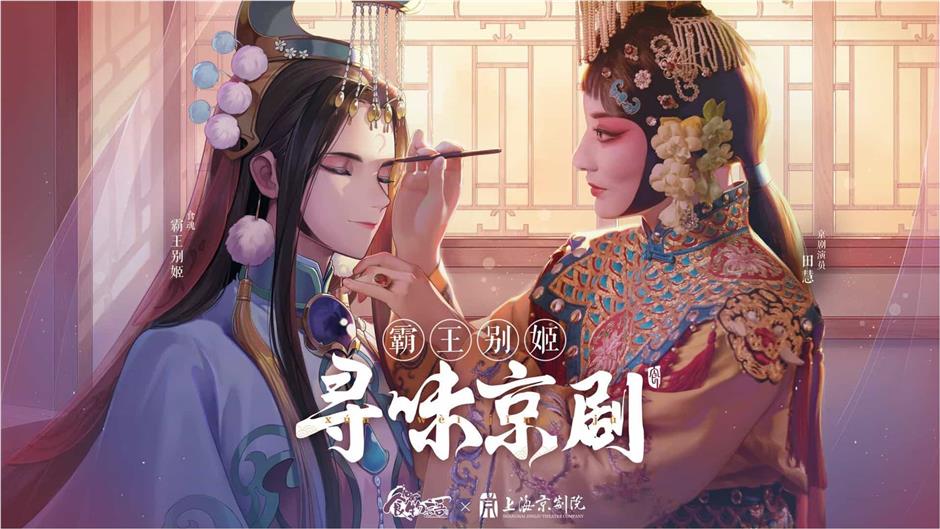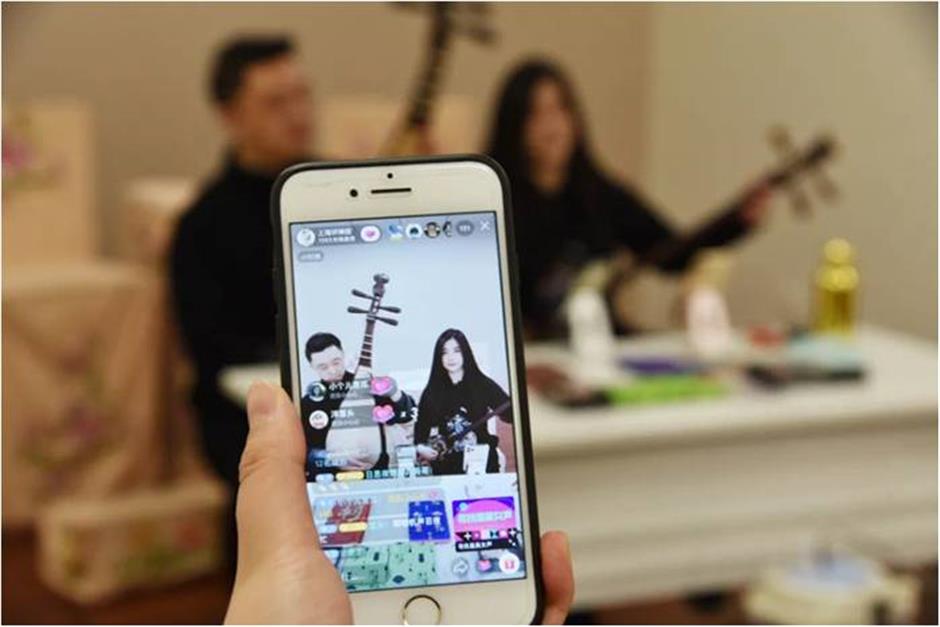Traditional operas on song on new stages
 0 Comment(s)
0 Comment(s) Print
Print E-mail SHINE, June 21, 2020
E-mail SHINE, June 21, 2020
Pingtan, or Suzhou-style storytelling, is another popular pastime for local senior citizens though it originated in neighboring Jiangsu Province. It has become part of the traditional lifestyle in Jiangnan, or south of the lower reaches of the Yangtze River.
Gao said the epidemic had also driven the traditional pingtan troupe to reform and find new ways to attract more younger audiences.
Gao said performances had been severely affected by COVID-19 because the traditional pingtan sites had been closed. In Shanghai and Suzhou, pingtan enthusiasts usually listen to the traditional opera around square tables with tea and snacks after lunch every day.
Many older fans complained they could not sleep without listening to a performance, he said.
Like the Huju troupe, local pingtan artists created many online plays about the doctors and nurses fighting on the frontline in Wuhan.
Gao presented a live and interactive program on the evening of March 30. He demonstrated and taught different opening episodes of classic pingtan plays adapted from the ancient Chinese novel "A Dream of Red Mansions."
The livestream provided an insight into the charm of pingtan, an age-old form of artistic storytelling set to musical lyrics in Suzhou dialect, Gao said.
"It is expected to not only attract Chinese fans but also overseas audiences," he said. "Even if they cannot understand the language, they can get immersed in the plays easily."
The city's Peking Opera troupe found a more innovative way to promote the traditional art known as the quintessence of Chinese culture. It cooperated with popular cartoon mobile game Shiwuyu, which mainly attracts young female players, to get involved in the classic opera "Farewell My Concubine" in the game.

Famous artist Tian Hui, apprentice of Mei Baojiu, the son of world-renowned opera master Mei Lanfang (1894-1961), sang for the film promoting the game. The game's theme song that Tian also participated in has been played 150 million times on the Internet.
The troupe also offered detailed drawings of stage props, costumes, carpets and traditional patterns to the game's designers to promote the opera to its young players.
The troupe attracted more than 80,000 online viewers after registering on Bilibili on February 19, said Zhang.
The online performances have been seen more than 2 million times, with over 70 percent of the audience under 30 years old.
"These are the surprises we've harvested during the epidemic," Zhang said. "We hope Peking opera and traditional Chinese culture can be promoted widely through the new platforms."

Other local traditional theater troupes are also presenting innovative "Cloud Theater" performances for frustrated theatergoers. Shanghai Yueju Opera House showcased 22 online shows on major video-sharing websites, including iQiyi, Youku, Douyin and ixigua.
The Shanghai Center of Chinese Operas hosted an online broadcast of traditional theater over 10 online platforms, including Douyin, ixigua, Bilibili and Cultural Shanghai Cloud. Classic Peking Opera, Kunqu, Huju, Yueju, Huaiju and pingtan shows are aired in innovative styles.
According to the China Internet Network Information Center, the number of China's livestreaming audiences reached 560 million as of March.
Though online performances have gained popularity, they still have drawbacks, said Zhang Yifan, a professor with the School of Liberal Arts of Renmin University of China.
"For instance, online shows lack the interaction between artists and audiences, which is a quite important part in the performances of traditional Chinese operas," Zhang said.
"Without the instant reaction from the audience, performers may find it hard to get motivated," the professor added.
Zhang said young audiences should be guided to watch opera at theaters after the pandemic.
"The traditional operas should develop online and offline harmoniously," he added.






Go to Forum >>0 Comment(s)